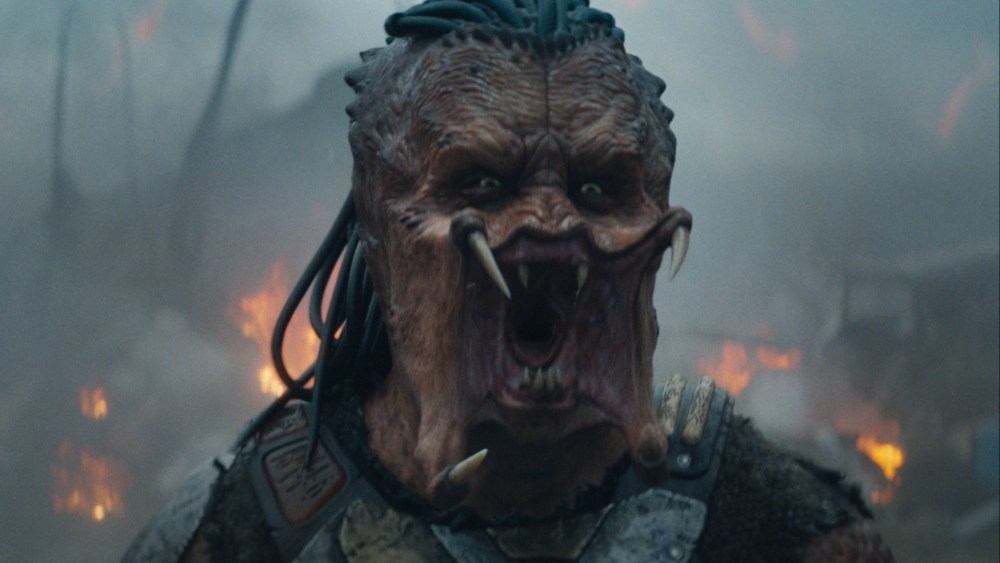France’s vibrant VFX sector is now at the forefront of the country’s broader efforts to strengthen the appeal of global productions, reflecting a national strategy that has championed the technology since the 2020 revision of the Tax Rebate for International Productions (TRIP).
This update introduces a 10% bonus on all eligible expenses for productions over $2.3 million with local VFX houses. Five years on, this incentive has proven transformative, encouraging studio expansion, talent development and steadily attracting high-profile international projects to French soil.
The sector has now reached maturity, and with maturity comes resilience. Technicolor’s unexpected bankruptcy led to layoffs and production disruptions, and the broader post-pandemic economic slowdown caused commissions to fall by nearly 30%. As AI disruption and studio consolidation loom, growth will increasingly depend on adaptability.
“Flexibility, agility and teamwork will define new business models,” says Yard founder and CEO Lawrence Arman. “Our medium-sized organization offers real advantages. Our clients know that their projects matter, they get a great team, and we always respond quickly.”
Based in Paris, Montpellier, and now London, the yard is directly linking its expansion to relationship management, a move that leverages multiple tax credits while maintaining close relationships with partners such as Amazon and Netflix.
Case in point: Yard maintained strong relationships with the project’s VFX supervisors after working on 2019’s “Ford vs. Ferrari,” before commissioning advanced creature work on this year’s “Predator: Badlands.” Tasked with the milestone sequence, the studio built an animation, character, creature, and digidouble pipeline from the ground up, processing 120 complex shots and creating a robust toolset for future creature FX.
“Working with creatures is one of the most complex parts of VFX,” explains Arman. “Once we master this, we will be able to bid on entire sequences with expansive environments and complex characters, positioning us as a Tier 1 VFX company.”

Netflix

One of Us in Paris is responsible for work on the upcoming feature “The Bride!” and “Peaky Blinders: The Immortal Man.”
Executives at VFX studio One of Us say their work on 2024’s “Damsel” was similarly transformative. The studio delivered over 400 shots. 250 of the shots featured fully realized, emotional dragons, and the rest were dedicated to massive destruction and fully 3D environments. Splitting the work between outposts in London and Paris, the studio’s team overcame this challenge by working seamlessly and gaining cost-saving insights.
“Early involvement is key,” says Emmanuel Pichereau, CCO at One of Us. “This allows us to plan strategically, reduce shot counts, control costs, and most importantly, align with the film’s storytelling from the very beginning, when changes are still flexible.”
The studio is applying this philosophy to upcoming projects such as “The Bride!” and “Peaky Blinders: The Immortal Man.” In both cases, the team works from its Paris office to qualify for a full French tax refund, creating visual effects that are seamlessly designed without being flashy.
“We want to fit into these worlds,” says CEO Rachel Penfold. “We’re there to contribute to the story and realize the filmmaker’s vision, not to show off. The best visual effects are often the ones that the user doesn’t notice.”
But Penfold is happy to promote the French value proposition, and recently traveled to Los Angeles to champion Gallic talent at industry sessions and case studies.
“The French film industry is mature, and its talent is often not only trained in specific software, but also immersed in a culture of good filmmaking,” Penfold says. “The emphasis is on culture. It’s artistic problem-solving and craftsmanship. Some people focus on technical details, but French artists tend to have a more holistic and balanced perspective, which adds value to any project.”

